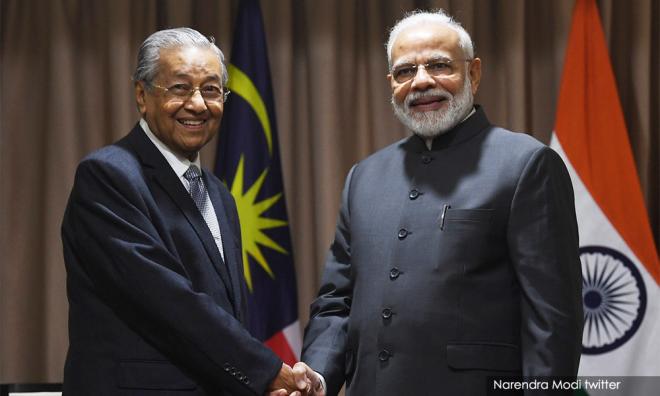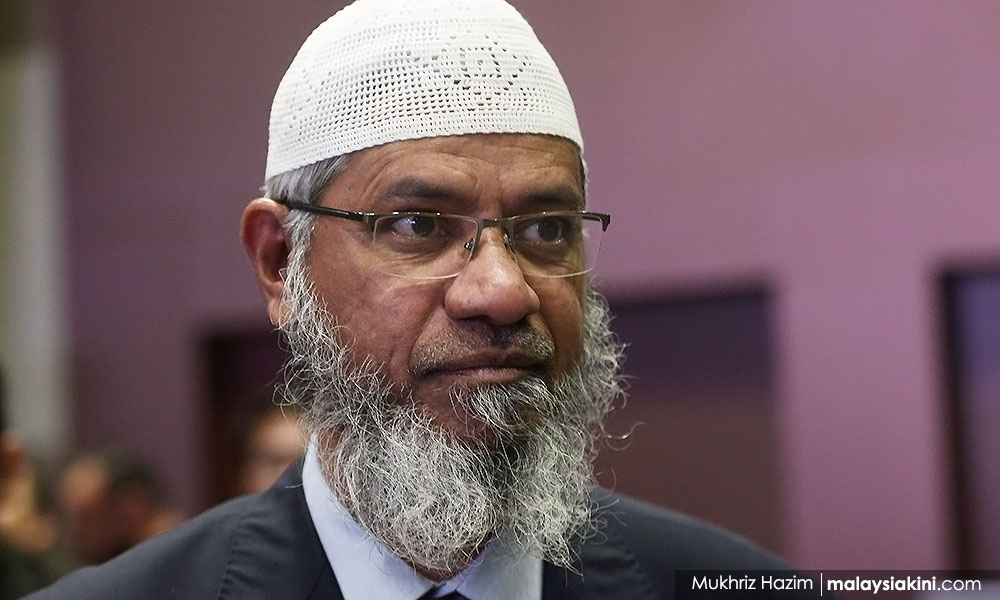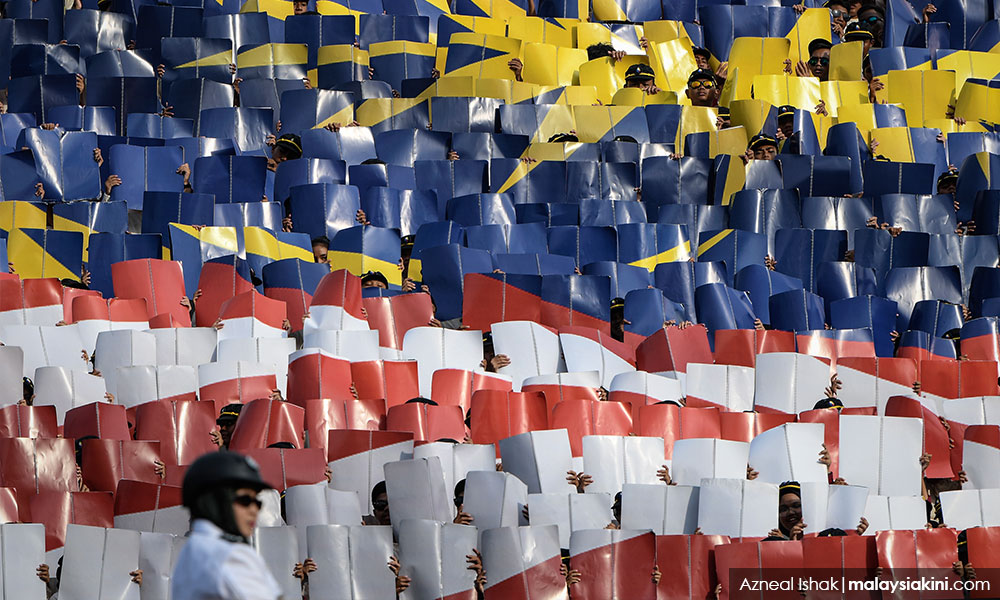
"Mirror, mirror, on the wall, who's the fairest of them all?"
We all recognise the mantra of Snow White's evil stepmother. Our public apathy around certain issues brings to mind the “wicked queen’s” mantra.
We gaze at aspects of our reflection as we think everything is more or less well, and, yes, we are the greatest country with the greatest internal policy.
I am now asking our Prime Minister Dr Mahathir Mohamad and PAS president Abdul Hadi Awang to look at the "magic mirror" and ask themselves which nation is most just and fair.
One should look at oneself first in the mirror to identify one’s flaws and to correct them, to set them right before being too quick to jump at another nation’s internal immigration laws.
One should refrain from making emotional outburst statements that hurt other nations.
Mahathir's criticism of India’s Citizenship Amendment Act (CAA) is not in sync with the established diplomatic practice of non-interference in any country's internal affairs.
This was despite such principles and purposes being outlined by the Charter of the United Nations on non-intervention into the internal affairs of another foreign state.
If Malaysia starts to interfere with the internal laws of other countries, then it will open up to a lot of interpretations on the non-interference policy amongst nations.
I am appalled at the uncalled for statements made by our leaders against India’s internal policies and laws. We should not make any statements when we are ill-informed of the exact terms of a policy.
I note that our Muslim leaders have not highlighted which part of the immigration laws of India that they are against and had offended the international law, if any?
All nations have their legitimate reasons to introduce and implement a specific policy or law and should not be open for unfounded ridicule based on mere solidarity of emotions.

For example, some may view democracy in Malaysia as being very limited in its true sense compared with the practice in India.
So does India or Singapore have the right to interfere in Malaysia’s affairs? On that note, I think Indian Prime Minister Narendra Modi would be very keen to interfere in Malaysia’s affairs using the same argument.
Why go far? Didn’t Malaysia tell Modi off when India asked why Zakir Naik (above), the wanted fugitive of India, was granted permanent residency in Malaysia?
Citizenship in Malaysia and the rights that are attached to it, as we are all well aware of, are divided between the bumiputera and the non-bumiputera.
Hence, the special privileges that are accorded to the bumiputera, although they have been accepted by the minorities, remain as a double standard in the context of equality as enshrined in our Federal Constitution.
Against this backdrop, we should refrain from criticising other nations because it could eventually bring criticism upon ourselves. Our nation should indeed be practising equitable distribution of rights before we run down the internal policies of a foreign nation.
We need to look at our "magic mirror" to assess if we are exercising just and fair policies for all in our own nation before pointing fingers at others.
Even on the issue of introducing Jawi lessons in schools, it must be highlighted that India has never imposed any educational policies on its non-Hindu citizens to study Sanskrit.
But Malaysia had imposed the learning of Jawi in government schools many years back and the non-Muslims adhered to the learning of Jawi.
But why introduce Jawi script lessons in vernacular schools when the issue of vernacular schools is diverse between the fully-aided and the partially-aided schools?
Playing up issues surrounding the implementation of a government policy to create further diversity in our multi-racial society is totally unacceptable.
Using the history of the Malay archipelago to entrench the teaching of Jawi script in vernacular schools certainly cannot hold water.
Likewise, curbing the non-Muslims from avenues to show their opposing views on the implementation of the Jawi lesson is totally unacceptable against a democratic backdrop.
The citizens should be allowed and given access to air their opinion and perception on government policies.

Then it’s up to the government of the day to make a decision on whether their views would be taken into account or otherwise.
We live in a multi-ethnic, multi-religious, multi-cultural world. Malaysia is a clear example of such pluralism. As a nation with various policies and disagreements, we have endured it all in the name of harmony.
But that does not provide us with the license to point out how India should manage its nation. We cannot stand with serious cracks in our own democracy structure and frays to the fabric of our multi-religious society and call out the crack in another nation.
"Me, myself and I, my race, my religion" – we beat them all. We are pushing our own religious agenda without paying attention to how our actions and perceptions affect other races and religions and measure our belief and perception against our own illusion without an emotional outburst.
Ultimately, the bluff will be called. The evil queen has got to face the truth.
“Malaysia is not the fairest of them all.”
So what was the whole story about?
Leaders should not be too quick to attack the policies of other nations. Instead, our own internal policies must be checked to accommodate all ethnicity in a fair and just manner.
Maybe Malaysia has to take a few lessons on unity in diversity from its bigger Muslim counterparts like Indonesia.
Let’s concentrate on our own issues to make Malaysia a better place to live in so that one day when we ask the mirror it will say we are the fairest of them all.
SA VIGNESWARAN is the MIC president and Senate president. - Mkini



Well said Mr Vigneswaran. But some idiot may not comprehend. Third world or rather jaguh kampung thinking. Period.
ReplyDelete